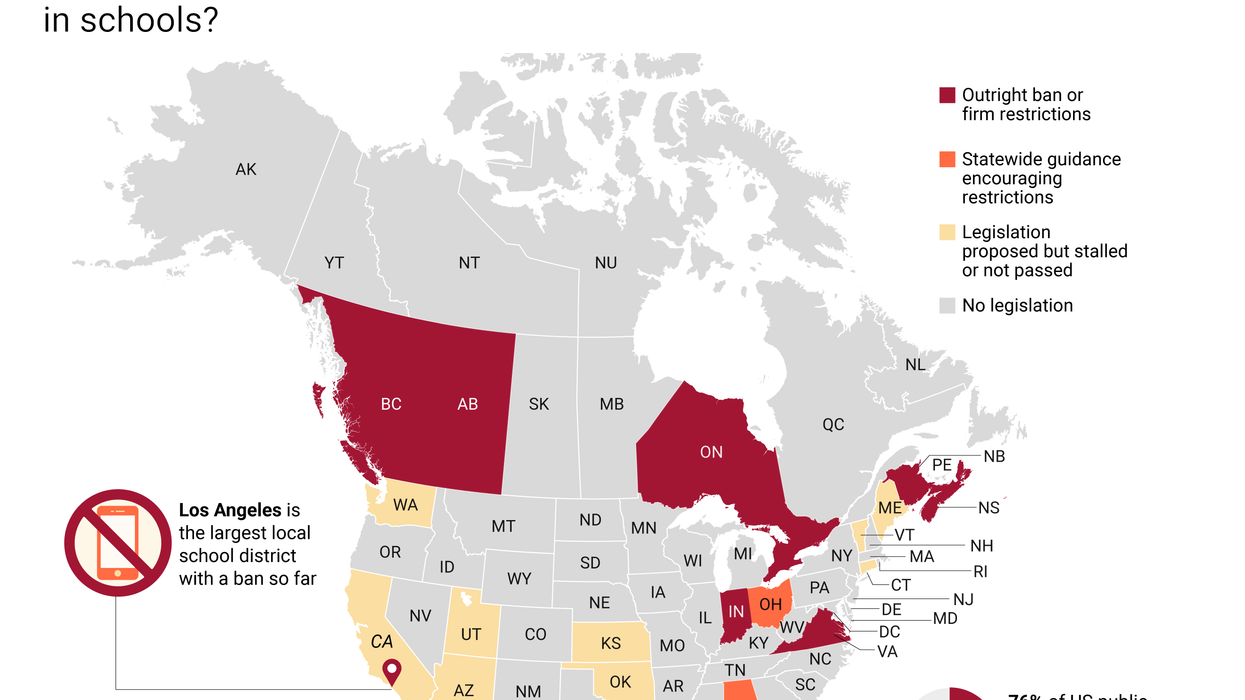GZERO North
Graphic Truth: The state of cellphone bans in schools
Should smartphones be banned in schools? Three-quarters of US schools already restrict the use of cellphones during lesson hours, but only a handful of state governments have imposed blanket restrictions. Meanwhile, half a dozen Canadian provincial governments have passed restrictions.
Jul 25, 2024

